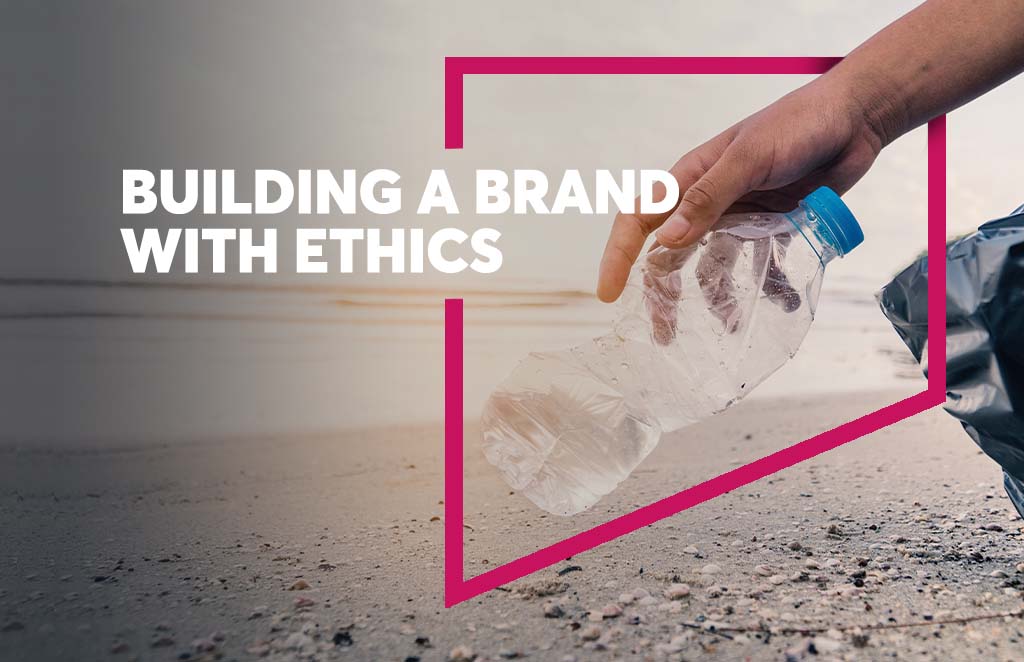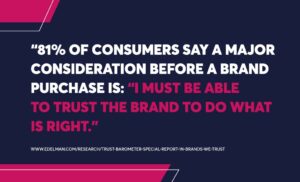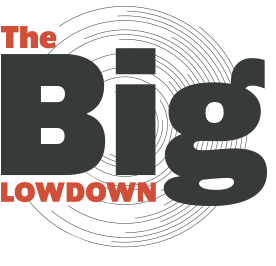Building a brand with ethics

When searching for a product or service, consumers buy into brands, and there are a whole host of reasons for consumers to choose a particular brand. Consumers may be looking for an indicator of status like with high-end fashion brands, they may be buying into becoming part of a tribe (think Apple vs Google or Xbox vs PlayStation), or they could even be picking the start-up brand just because it’s not the big corporate offering. But a trend we’ve seen rising over the past few years is ethics, or simply put, looking to buy from brands that are doing the right thing.

In recent years the media has become littered with stories of brands that have used unethical practices, for example Amazon’s treatment of its staff in warehouses to the Volkswagen emissions scandal. This has led to calls and social media campaigns to boycott certain brands, alongside movements pushing for a more ethical way of doing business, like B Corporations, have exploded in popularity.
Every brand has a choice – a choice to operate ethically and to create a positive and meaningful impact to society, regardless of the businesses industry, product or service offering. This goes beyond a logo or a marketing campaign, and it should be built into the brands DNA and expressed through its values, strategies and actions. In essence, it’s the activities of the business behind the brand.
So, what are the characteristics that make an ethical brand? Ethical brands are businesses that:
- conduct themselves with a strong moral compass
- cause no (or limited) harm to people, animals or the planet
- have a positive, responsible and sustainable impact on society
The businesses behind brands have choices. For example, a chocolate bar manufacturer can choose to use palm oil or a sustainable oil. A clothing brand can choose to make people work in humane or inhumane conditions. And it’s these choices that are now strongly influencing consumer decisions.
You may be questioning the ethics of your brand or may be looking to start on a journey to make your brand more ethical. If so, here are some questions for you to consider:
Why does your brand exist?
Your brand should have a purpose – a reason for existing beyond just making money. But what’s important here is your purpose should be related to what you sell. For example, if a brand sells clothes it shouldn’t just decide to give IT equipment away to local schools as that isn’t a purpose, it’s just a nice thing to do. Naeco is a sustainable fashion brand with a clear purpose. It’s range of clothes are made from ocean plastics and it’s purpose is to reduce plastic waste by recycling used plastic products to stop them going straight to landfill. Outside of this, they also arrange beach clean-up operations and educate people on how to reduce their reliance on single use plastics. Their purpose is directly related to their product and their brand offering to consumers.
Should you want to explore your purpose, the Sustainable Development Goals developed by the UN are a great place to start and are described as ‘a to-do list for people and the planet, and a blueprint for success’. How could your brand support one of these whilst still staying true to itself?
What do you stand for?
What you stand for are the principles upon which your brand should exist. As an ethical brand these should be built on truth, fairness, honesty and equality. Let’s take Café Direct as an example as this brand was set up to be mission-led and to deliver a positive effect for small-hold farmers worldwide. The brand principles echo some of those above – fairness and equality – by investing up to 50% of their profits into a charity for farmers, ensuring all products are Fairtrade and purchasing 50% of their coffee as organic (and paying a premium to do so). Their principles are set and are clearly measured.

How can you positively impact society?
Brands may wish to appear more ethical with a clearly defined purpose and principle, but it’s important that these choices filter down into their products too. An ethical brand should have a positive impact on society, or at an absolute minimum work to reduce any negative impacts.
For example, a food brand can swap the ingredients in their product to those that are ethically sourced and eradicate harm to the environment (e.g. no palm oil). They could also consider their carbon footprint, by investing in more environmentally friendly packaging. These changes will positively impact the environment and people’s lives – it may not be perfect, but it’s certainly an improvement.
Whether you have an established ethical brand or you would like to become more ethical, we can help. We have a history of helping brands position themselves in the market and helping them tell their story. Get in touch if you would like to know more.
